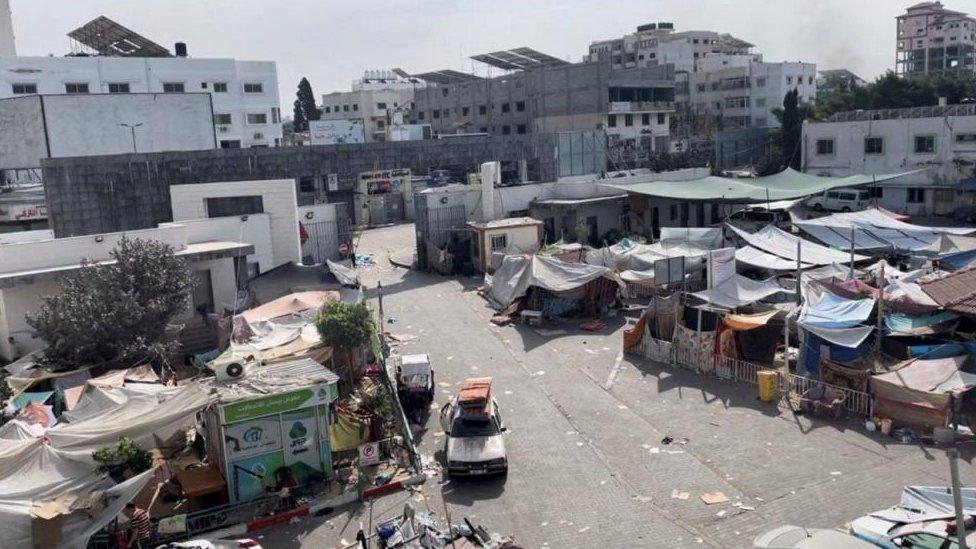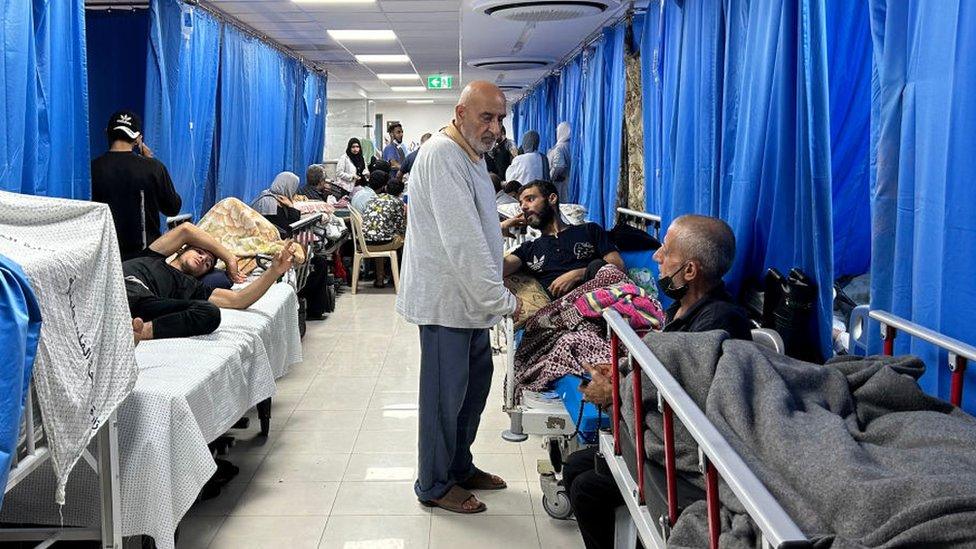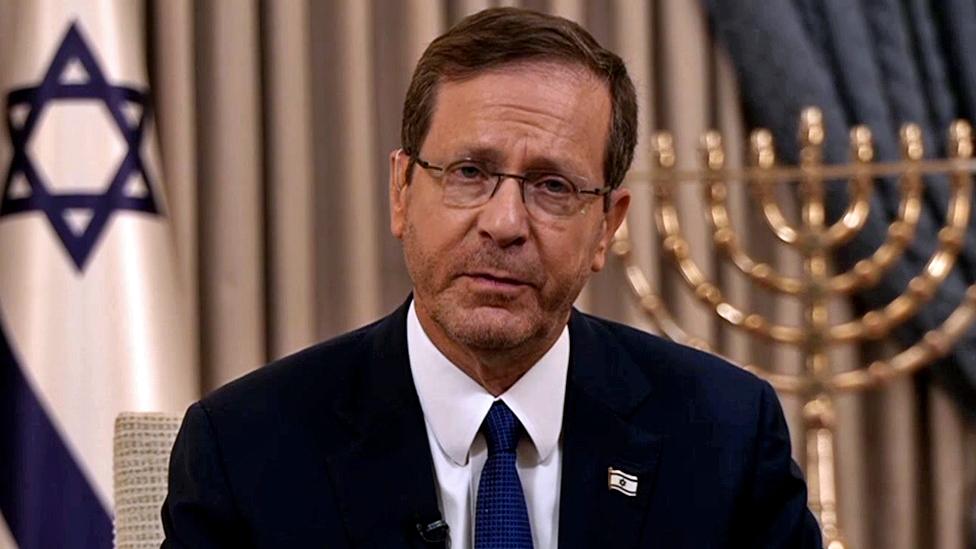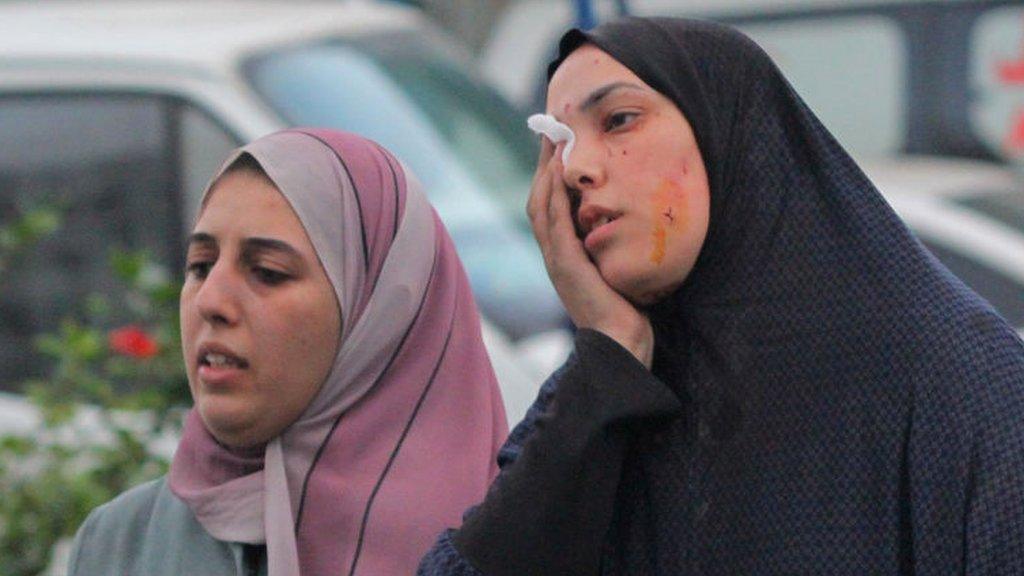Bowen: Al-Shifa Hospital raid comes as tone shifts on Israel
- Published

This picture taken on 12 November shows displaced Palestinians seeking shelter in tents outside Al-Shifa hospital in Gaza City
Al-Shifa is the main hospital in Gaza City - I've been there many times. It has big grounds, so people in Gaza went there to seek shelter and camp out as they saw it as a safe area.
It has now become a symbol of the juxtaposition of the war - the Israeli invasion of Gaza inflicting masses of casualties and damage, set against the crisis of urgent humanitarian need inside the hospital.
The Israelis have made a very big point about saying that, as well as going after the Hamas military command, they have brought in some fuel and incubators, because there has been a very concerning claim that premature babies in Al-Shifa Hospital had to be taken out of their incubators.
However, the issue isn't a lack of incubators, it's a lack of fuel. Until Wednesday, Israel hadn't allow fuel into the Gaza Strip because they argued that Hamas would steal it and use it.
Some 23,000 litres (5,060 gallons) of fuel has now been allowed in, but it is only to be used to refuel UN lorries. The UN says the delivery comprises only a fraction of what's needed for humanitarian operations, and the entry of fuel to run generators at hospitals and at water and sanitation facilities remains banned.
Israel says Hamas has stockpiles of its own, and that it should use that fuel for the generators supplying the hospital electrical system.
So there are a lot of strands coming together in what's unfolding in Al-Shifa Hospital this morning, but that's not the whole war - it will continue once this particular operation is over.
At the same time, we have seen a hardening of the international position around the Israeli offensive in the last few days with the US, the UK and France using language that is shifting the tone - perhaps summed up best by what US Secretary of State Antony Blinken said last weekend: "Far too many" Palestinian civilians have been killed.
Two running clocks
The Israelis knew this shift would come because this is a repeat of the pattern we have seen many times before with Israel's military operations. They talk about different clocks running during any operation.
One is military: how long do they need before they accomplish their military objectives? The other is diplomatic: how long does Israel hold legitimacy to carry out that operation before its allies say, "you've killed enough people, civilians, you need to stop now please."
Israel feels that because of the absolute enormity of the numbers of casualties in the Hamas attacks on 7 October, they have more time than usual, and I think they have gone in - as we can see from the levels of casualties in Gaza - using a great deal of force.
I have seen some estimates that suggest the Israel Defense Forces will continue to work in this way for a couple more weeks, but I think the forces are gathering among their allies to say you need to change the nature of your military operation.
That doesn't necessarily translate to a call for this to stop - certainly we haven't yet heard a call for a ceasefire from the British or the Americans.

More on Israel-Gaza war
Follow live: Latest updates
From Gaza: Giving birth with no painkillers under the bombs in Gaza
From Israel: Hostages' fates haunt Israel as Gaza war intensifies
Explained: The faces of hostages taken from Israel
History behind the story: The Israel-Palestinian conflict

Related topics
- Published12 November 2023

- Published13 November 2023

- Published14 November 2023
